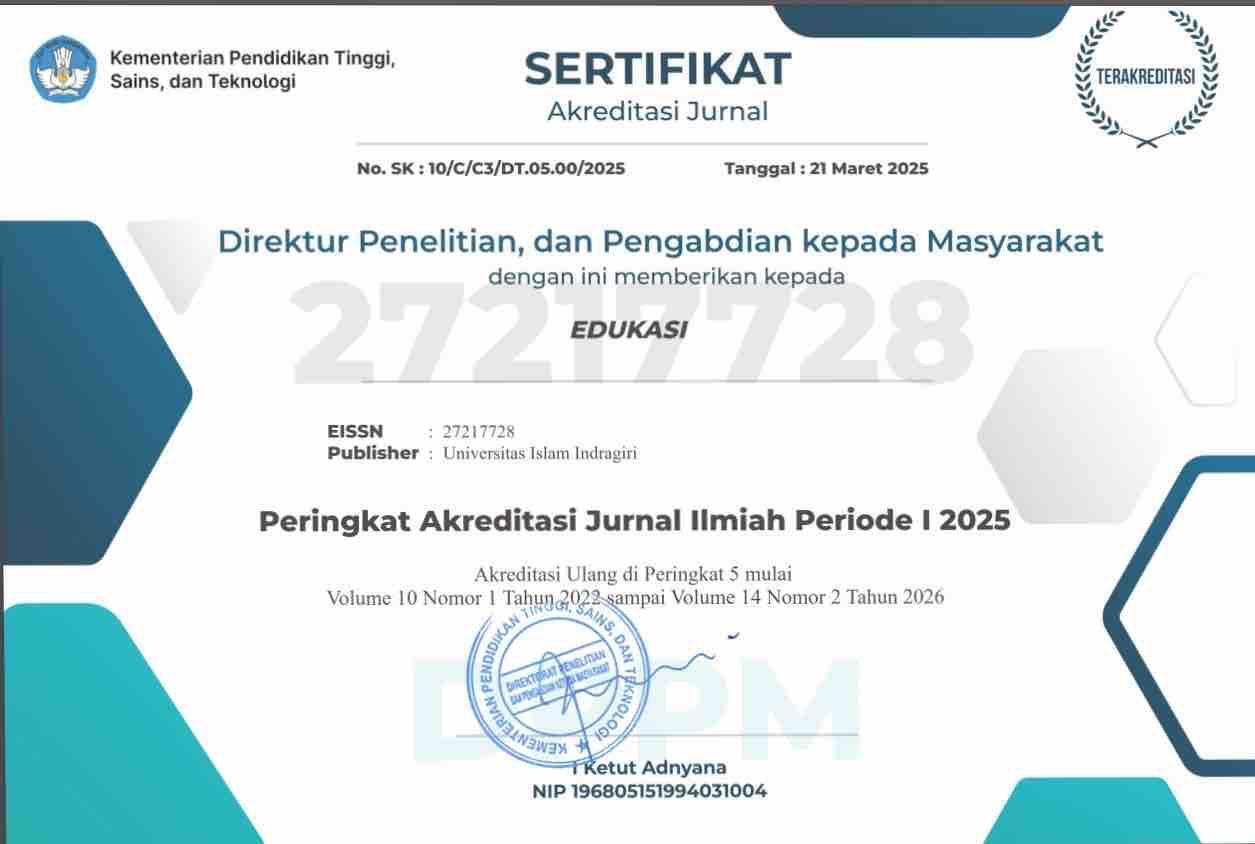Kepemimpinan Dalam Islam (Sebuah Pendekatan Normatif)
DOI:
https://doi.org/10.61672/judek.v10i2.2376Keywords:
Kepemimpinan, Islam.Abstract
Religion is the truth that comes from God, and religion has the value of the ultimate. It is only God who knows the truth, and he is the only one who understands the truth. Through the library study approach, there are various leaders in Islam, including the words Khalifah, Ulil Amri, Imam, and Ro’in. There are two forms of people's paradigms of Islamic leadership: the formalistic paradigm and the substantive paradigm. It is not only God’s will, but it is also His will, and it is His will that he will be the Lord of all the worlds. The ideal leader according to the Islamic concept is a leader who practices the basic principles of leadership in Islam, such as the principle of Tauhid (QS.an-Nisa:48, QS.al-Ikhlas:1-4), the principles of Mutyawarah (Qs. al-Imran:159), the principles of justice (QC.an-Nisa:58, QC.al-Maidah:8), the principle of equality (QD. Al-Huzarat:13), and the principle of responsible freedom. (QS.al-Baqarah:256, QS.al-Kahfi:29). In addition to the above principles, an ideal leader is one who has leadership like what has been explained by the Prophet (peace be upon him), because in him there is a good teaching, which is reflected in the nature or character of the prophet (Siddik), Tabligh (delivering the truth), Trust (believing), and Fathannah.
Downloads
References
Hatta, Ahmad, Tafsir Qur’an Perkata, Maghfirah Pustaka, Jakarta, 2009
Tim Penyusun Prima Pena. Kamus Besar Bahasa Indonesia, Edisi Terbaru, Gita Media Press, Jakarta, 2010.
Kemendikbud, 2015, Kamus Besar Bahasa Indonesia Online (KBBI), Edisi III Hak Cipta Pengembangan dan Pembinaan Bahasa Kemendikbud, . http://kbbi.web.id/adil.
As-Suwaidan,2005 Thariq Muhammad dan Faishal Umar Basyrathil, Melahirkan Pemimpin Masa Depan, M Habiburrahman penj., Jakarta:Gema Insani Press, Cet.,I
Jurnal Mawa’izh. Manusia Sebagai Khalifah Dalam Persfektif Islam, Vol.1, No.7, Juni 2016, STAIN Syaikh Abdurrahman Siddik Bangka Belitung.
Ali Ahmad as-Salus, 1997. Aqidatul Imamah (Imam dan Khilafa), Terj. Asmuni Sholihan Zamakhsyari, Gema Insan Press, Jakarta.
Muhammad Yunus. 1992, Kamus Arab-Indonesia, Cet. II PT. Hidakarya Agung, Jakarta,
Al Mawardi, tafsir al-mawardi, jilid 3, Darul kitab ilmiyah, bairut Lebanon,
Muhadi. 2008, Studi Kepemimpinan Islam (Telaah Normatif dan Historis), Cet.II. Putra Mediatama Press, Semarang.
Ibnu Taimiyah, 2011. Kekuasaan Politik Nabi SAW (Muhammad Munawwir Az Zahidi, penerjemah) diterjemahkan dari As-siyaasah Asy Syar‟iyyah fi Ishlaahir Raa‟I war Ra‟yah, hlm 158-165. Dunia Ilmu, Surabaya.
Al-Bukhari, Imam Abi Abdillah Muhammad ibn Ismail, 1992, Shahih al-Bukhari, Beirut: Dar al-Kutub al-‘Ilmiyyah, Juz VII, Cet.,I.
Abu Daud Sulaiman Ibnu al-aysats al-Sajistami al-Azdiy, Sunan Abi Dawud (Indonesia: Maktabah Dahlan, 2003).















